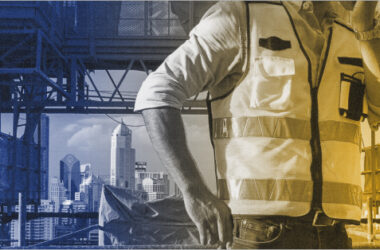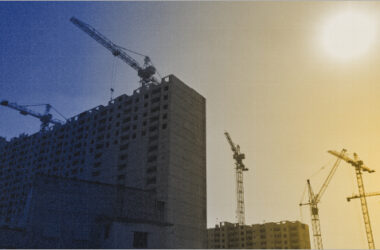Industrial all risk policy covers a wide range of risks associated with industrial activities. This policy is designed to protect businesses from financial losses due to damage or loss of property, equipment, or machinery. It also covers third-party liabilities arising from accidents or incidents that occur on the premises.
Understanding the fundamentals of an industrial all risk policy is essential for businesses that operate in high-risk environments. By having the right insurance policies in place, businesses can protect themselves from financial losses and mitigate the impact of unexpected events.
Overview of Industrial All Risk Policy
An Industrial All Risk Policy covers a wide range of risks that an industrial business may face. This policy is designed to protect businesses against financial losses due to property damage, business interruption, and liability claims. The policy can cover a variety of industries, including manufacturing, construction, and transportation.
The policy covers physical damage to property, including buildings, machinery, and equipment, as well as loss of income due to business interruption caused by events such as fire, theft, or natural disasters. It can also provide coverage for liability claims arising from third-party injuries or property damage caused by the insured’s business operations. The scope of coverage under an industrial all risk policy can be customized to meet the specific needs of the insured. The policy can be extended to cover additional risks such as business interruption, loss of profits, and terrorism.
Overall, the industrial all risk policy provides businesses with the peace of mind that comes with knowing that they are protected against a range of risks that could otherwise result in significant financial losses.
Key Coverages Provided in Industrial All Risk Insurance
Here are some of the key features of industrial all risk policy:
1. All-Risk Coverage
Industrial all risk policy provides all-risk coverage, which means that it covers all types of risks unless they are specifically excluded from the policy. This type of coverage is broader than named-peril coverage, which only covers risks that are specifically listed in the policy.
2. Property Coverage
Industrial all risk policy covers loss or damage to property, including buildings, machinery, equipment, and stock. The policy covers damage caused by fire, lightning, explosion, earthquake, storm, flood, theft, and other perils. The policy also covers damage caused by accidental events, such as human error or mechanical breakdown.
3. Business Interruption Coverage
Some industrial all risk insurance policies also cover loss of income and additional expenses incurred due to business interruption. The policy covers loss of income due to property damage, as well as loss of income due to interruption of business operations caused by perils covered under the policy.
4. Liability Coverage
Industrial all risk policy provides liability coverage for third-party claims arising from bodily injury or property damage caused by the insured’s business operations. The policy covers legal defense costs as well as damages awarded to the claimant.
Overall, an industrial all risk policy is a comprehensive and valuable policy for businesses that want to protect their assets and operations from unexpected events.
Exclusions in Industrial All Risk Policies
Industrial all risk policy cover a wide range of risks and perils that can cause damage or loss to industrial properties. However, certain exclusions are not covered under these policies. It is important to understand these exclusions to avoid any misunderstandings or disputes in the event of a claim.
Some of the common exclusions in industrial all risk policies include:
- Wear and Tear: Damage caused by normal wear and tear of equipment or machinery is not covered under these policies.
- Gradual Deterioration: Damage caused by gradual deterioration of property or equipment due to exposure to weather, humidity, or other natural factors is not covered.
- Consequential Loss: Any loss or damage that is a result of a covered peril is not covered under these policies. For example, loss of revenue due to a fire is not covered under a standard industrial all risk policy. However, it can be availed as an endorsement.
- War and Terrorism: Damage caused by war, invasion, acts of foreign enemies, hostilities, civil war, rebellion, revolution, insurrection, military or usurped power, or terrorism is not covered under these policies.
- Nuclear Risks: Damage caused by nuclear reactions, radiation or radioactive contamination is not covered under these policies.
Benefits of Industrial All Risk Insurance for Businesses
provides a range of benefits to businesses. Here are some of the key advantages of having this type of insurance policy:
- Comprehensive Coverage: Industrial all risk insurance provides comprehensive coverage against a wide range of risks, including fire, theft, natural disasters, and other unforeseen events. This means that businesses can have peace of mind knowing that they are protected against a range of potential risks.
- Customizable Policies: Industrial all risk insurance policies are customizable to suit the specific needs of each business. This means that businesses can choose the level of coverage that they need, and can add or remove coverage options as their needs change over time.
- Financial Protection: Industrial all risk insurance provides financial protection to businesses in the event of a loss. This means that businesses can recover from a loss more quickly, and can avoid the financial burden that can come with unexpected events.
- Risk Management: Industrial all risk insurance policies often come with risk management services, which can help businesses identify and mitigate potential risks. This can help businesses to avoid losses in the first place, and to reduce the likelihood of future losses.
- Legal Protection: Industrial all risk insurance policies often include legal protection, which can help businesses defend themselves against legal claims. This can be particularly important for businesses that operate in high-risk industries, or that face a higher risk of legal action.
- Property Protection: The policy typically covers physical assets such as buildings, machinery, equipment, stock, and other property. In the event of damage or loss due to covered perils, the insurance helps in the restoration or replacement of the insured property.
- Protection Against Natural Disasters: Given the geographical location of India, where businesses may be susceptible to natural disasters such as earthquakes, floods, and cyclones, IAR Insurance provides a safety net against these events, helping businesses recover from the damages.
- Peace of Mind: Having industrial all risk insurance provides business owners with peace of mind, knowing that they are financially protected against a wide range of unforeseen events. This allows them to focus on their core business activities without constant worry about potential risks.
- Regulatory Compliance: Some industries may require businesses to have specific insurance coverage to comply with regulatory requirements. IAR Insurance can help businesses meet these obligations and operate within the legal framework.
Overall, industrial all risk insurance is an important tool for businesses that want to protect themselves against a range of potential risks. It’s important for businesses to carefully review the terms and conditions of the policy, understand the coverage limits, and work closely with insurance professionals to ensure that Industrial All Risk Insurance meets their specific needs.
Claims Process in Industrial All Risk Insurance
When a claim arises, the insured must notify the insurance company as soon as possible. The insured must also provide the insurer with all necessary documents to support the claim, such as invoices, receipts, and other evidence of loss. The insurer will then appoint a surveyor to assess the damage and determine the amount of loss. The surveyor will investigate the cause of the loss and collect evidence to support the claim.
Once the surveyor has completed their investigation, they will submit a report to the insurer. The insurer will then review the report and determine whether the claim is covered under the policy. If the claim is covered, the insurer will then calculate the amount of loss and inform the insured. If the insurer agrees with the compensation amount, the insurer will process the claim and make payment to the insured.
It is important to note that the insured has a duty to mitigate the loss, which means taking reasonable steps to prevent further damage or loss. Failure to mitigate the loss may result in a reduction in the amount of the claim.
Frequently Asked Questions
- How does an industrial all risk policy differ from a standard fire insurance policy?
An industrial all risk insurance provides coverage for a wider range of risks than a standard fire insurance policy. While a fire insurance policy only covers damages caused by fire, an industrial all risk policy covers damages caused by various other perils such as flood, earthquake, storm, and other accidental damages.
2. Could you explain the concept of underinsurance in the context of Industrial All Risk policies?
Underinsurance occurs when the sum insured is lower than the actual value of the property or assets being insured. In the event of a claim, the insurer will only pay out a proportionate amount of the claim, based on the percentage of underinsurance. It is important to ensure that the sum insured accurately reflects the actual value of the property or assets being insured.
3. What are the implications of policy excess in Industrial All Risk insurance?
Policy excess is the amount that the policyholder must pay towards a claim before the insurer starts to pay. A higher excess may result in lower premiums, but it also means that the policyholder will have to pay more out of pocket in the event of a claim. It is important to choose an excess that is affordable and reasonable.
4. What details are generally covered in the policy wording of Industrial All Risk insurance?
The policy wording of an industrial all risk insurance insurance policy typically includes details of the coverage, exclusions, policy limits, deductibles, and other terms and conditions. It is important to carefully review the policy wording to understand the scope of coverage and any limitations or exclusions that may apply.








